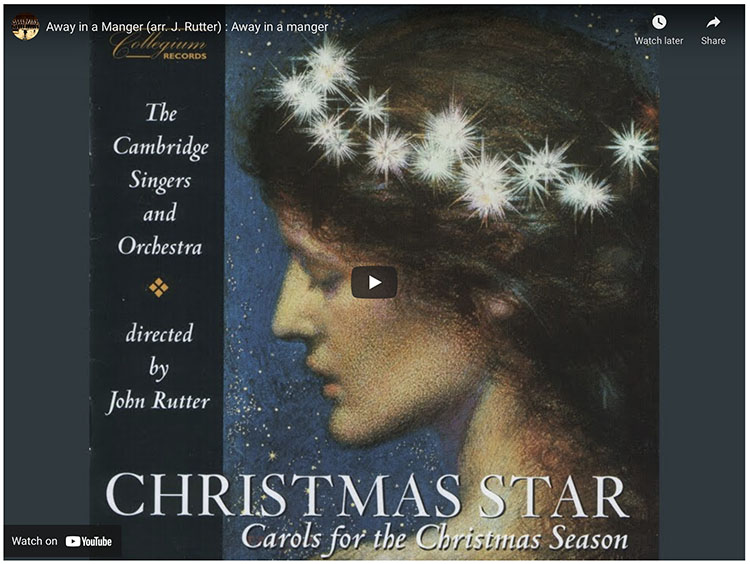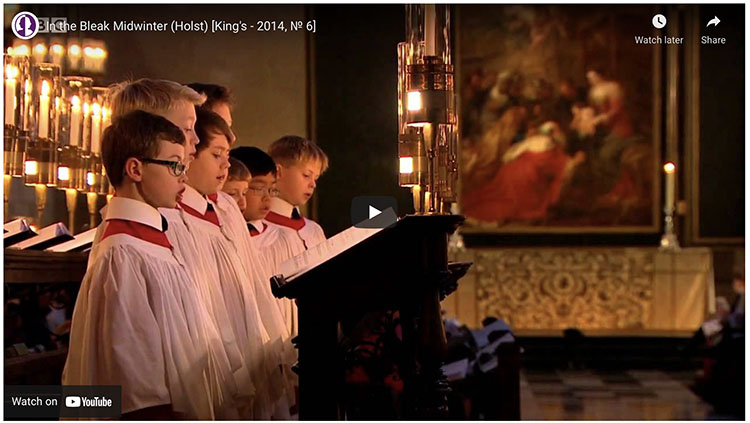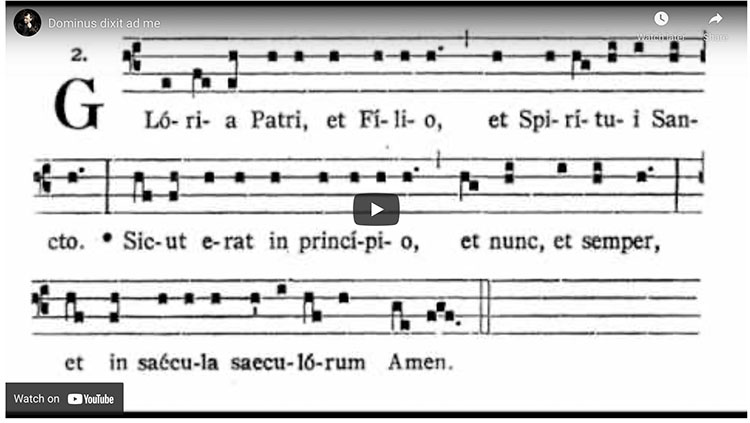
Away in a Manger
In Luke’s gospel, the angel appears to the shepherds and announces that a Savior has been born, and that they will find him wrapped in swaddling clothes and laid in a manger.
Why did the angel appear to the shepherds, and why did he bother to mention the bit about the manger? It was common to swaddle babies, but perhaps the manger stood out.
Bethlehem was known for its unblemished lambs that were sacrificed in the temple, and priestly shepherds raised them until they met their sacred fate. When one of these lambs was born, it was traditionally swaddled and placed in a manger lined with soft hay in order to keep it calm and safe from injury. Once calm and rested from the birthing process, it would be unwrapped and given to its mother. The shepherds must have understood that a baby who is swaddled and laid in a manger, and whom the angel called, “Savior,” was none other than the Lamb of God, the long-awaited Messiah.
Away, in a Manger
Away, in a manger, no crib for a bed,
the little Lord Jesus lay down his sweet head.
The stars in the sky look down where He lay,
the little Lord Jesus, asleep in the hay.
Text verse 1 and tune: Anonymous
In the Bleak Midwinter
Once the shepherds received this earth-shattering news, they were treated to another wonderful gift—to hear the multitude of the heavenly hosts singing, “Glory to God.” We have seen angels here and there in the Old Testament, but as messengers or helpers. Where have we ever seen them in a multitude, praising God? And I’m sure they were singing, because I believe that music is the language of heaven.
But for all their joy, these were heavenly beings, spirits without bodies. Mother Mary, in contrast, was able to hold Jesus, feel his newborn life, warmth, and breath, and praise him in another way.
Here is verse four from the hymn, In the Bleak Midwinter. This is text based on a poem by Christina Rossetti, and first published in the English Hymnal in 1906, with a tune by Gustav Holst. We often hear the anthem setting, composed by Harold Darke.
Angels and Archangels
May have gathered there,
Cherubim and Seraphim
Thronged the air–
But only his mother
In her maiden bliss,
Worshipped the Beloved
With a kiss.
Dominus dixit ad me
We often sing hymns at Mass, but most of those hymns are sung in place of the Propers of the Mass, those prescribed-for-the-day chants and texts for the Entrance, the Offertory and Communion. These are the Gregorian chants that Church still holds up as the music proper to the Mass, but that we seldom hear nowadays. We turn now to the entrance antiphon, the Introit for Christmas Mass during the night. The text is from Psalm 2. This chant is over a thousand years old, and is still the prescribed one for this Mass. We understand that the psalm is now put in the mouth of Jesus. Then we hear the Father speaking: “You are my Son…”
Dominus dixit ad me: (The Lord said to me:)
Filius meus es tu, (You are my Son)
ego hodie genuite. (Today I have begotten you.)
The psalm goes on: Quare fremuerunt gentes: (Why do the nations conspire)
et populi meditati sunt inania? (and the peoples plot in vain?)
Here we have such a contrasting thought—puzzlement over the fact that there is such evil and lack of faith in the world, and yet triumph in the fact that the evil one’s plot in vain.
The tender chant melody, with the rhythm based on the text is an intimate song of love between the Father and the Son.
When we sing or hear it at Mass, we become part of the song, both witness and participant to the love shared between the Father and the Son, and we are as privileged to be drawn into this relationship as were the shepherds on that first Christmas night.
When we join with all the angels and the saints in their song of praise, the Sanctus, (the Holy, Holy), we are as much present to the angel’s song as were the shepherds listening to the heavenly hosts.
Finally, when Jesus descends in the Holy Eucharist, body, soul, blood and divinity, we are as much in the presence of the Lamb of God as were the shepherds when they visited the newborn Jesus, wrapped in swaddling clothes and laid in a manger.



